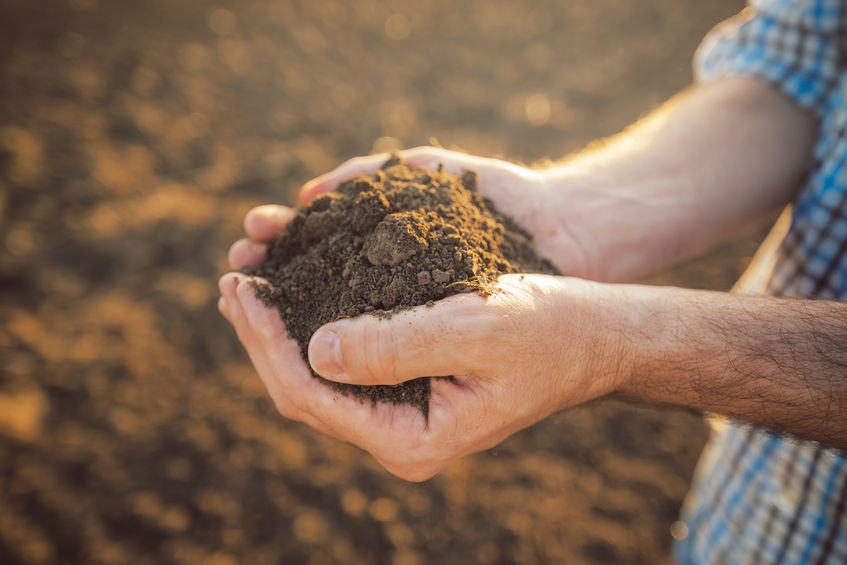£10m a year needed to protect soil and ensure farming productivity, report warns

£10 million pounds a year in England is needed to ensure the agricultural sector is still productive at the end of the century, according to a new report.
The agriculture sector, which is responsible for £8 billion of UK GDP and employs almost half a million people, is at risk due to "poor farming and land management practices", the joint-report by the WWF, the Angling Trust and the Rivers Trust warns.
This is causing soil to be destroyed at approximately 10 times the rate it is being created, costing £1.2 billion a year in England and Wales.
Research by WWF UK has also shown that up to a third of farmers may be non-compliant with England’s current water protection legislation.
This has been made worse by lack of enforcement; new data found that the Environment Agency’s current resources only allow for visits to less than 1% of farms each year.
Non-compliance with current water protection legislation has lead to widespread soil degradation, river pollution, increased flood risk and an increased costs for local authorities.
The report argues that benefits could be generated for nature and society if farm subsidies were redirected to incentivising farmers to change land use in small areas of farmland.
Soil quality
Soil quality is increasingly causing concern at a national and global level. In March, the government announced it will introduce a new bill mandating measures to improve the UK's soil health amid concerns that some areas are just decades away from the "eradication" of soil fertility.
The report says the estimated costs of rolling out effective enforcement in England, to prevent soil erosion and pollution of watercourses, would initially be £5.8m per year, but this would decrease after the first five years.
It explains that a 0.5% reduction in soil degradation costs would cover this and would pay for a “two strikes” model which includes proactive – rather than reactive - checking of farms; issuing warnings and offering advice to correct problems; and following up with sanctions and prosecutions for failure to address issues.
Creating a properly funded, locally coordinated advice service is critical to help farmers implement rules and manage the environment, the report urges. It is estimated that increased advisory presence in England would cost £3.2 million per year.
'Vital to natural security'
Tony Juniper, Executive Director of WWF said healthy soil is "vital to national security", but it still continues to be "immensely damaged".
“We could have a farming system that restores soils and wildlife, while at the same time stopping agricultural run-off polluting our rivers,” Mr Juniper explained.
“To do this we need not only the right legislation, however, but also robust enforcement and proper advice for farmers, otherwise new policies simply won’t work. The good news is that this will cost only about 10 million pounds a year.”
The government has already signalled its intention to phase out direct payments to farmers and move to a new land management usage system where public money is put towards the provision of public goods.
The report estimates that payments to fully reimburse farmers for changing land-use on small areas would cost less than £500m per year in England.
It explains that the current £2 billion CAP subsidy for England would provide for this, and leave room for investment in other environmental objectives and farm business productivity.








